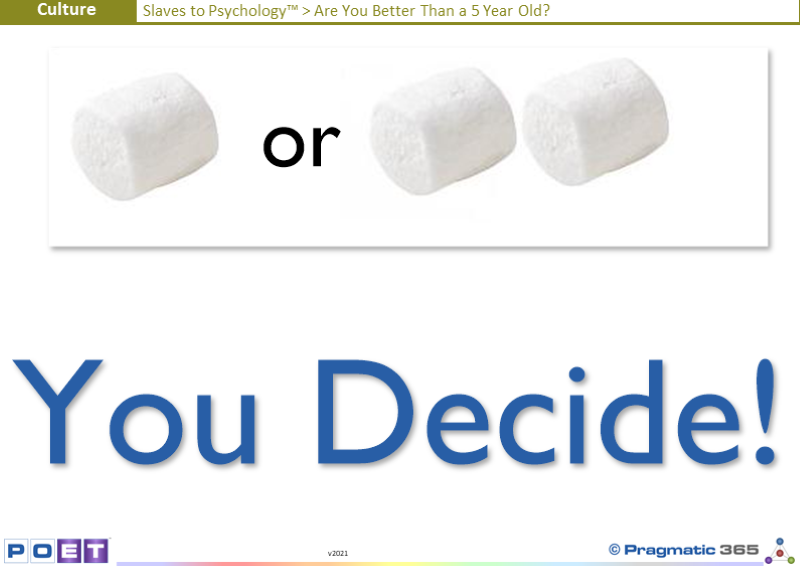
The Marshmallow Test
An experiment conducted in 1972 by Walter Mischel of
Stanford University sought to determine if deferred gratification can be an
indicator of future success.
Children, aged four to six, were taken into a room where a
marshmallow was placed on the table in front of them. Before leaving each of
the children alone in the room, the examiner told them they would receive a
second marshmallow if the first was still on the table after 15 minutes.
One-third deferred gratification long enough to receive the second marshmallow.
In follow-up studies, Mischel found that those who deferred gratification were
significantly more competent and received higher SAT scores than their peers,
meaning that this characteristic likely remains with a person for life.
...to read more, please Login or Register